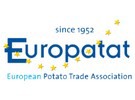Copa-Cogeca, Freshfel Europe, the European Fresh Produce Association, and Europatat, the European Potato Trade Association, have taken note of the European Commission’s proposal for a Regulation on Packaging and Packaging Waste that was published on 30 November 2022, and support the ambitions of the text to reduce packaging waste, protect the functioning of the internal market and achieve a circular economy in line with the European Green Deal.
It is with this in mind that we express great concern about aspects of the proposal affecting the fruit and vegetables sector in what is a challenging socio-economic context. In particular, we call attention to the proposed ban on single use packaging for less than 1.5kg of fresh fruit and vegetables, which disregards both the material uses and life-cycle analyses that demonstrate the sustainability of the packaging for the sector.
Restrictions without workable alternatives will result in protection of products and shelf-life being drastically reduced, as well as hygiene, organoleptic quality and traceability being compromised. In this light, the restrictions would not improve the supply chain’s environmental impact; conversely, they could result in increased environmental impact, as well as food waste. Moreover, the proposed ban disproportionately targets the fruit and vegetable sector and is not based on a thorough and science-based impact assessment.
Therefore, we strongly call for a revision of the above provisions, which would ban packaging for fruit and vegetables under 1.5kg, and to focus not on prohibitions but instead incentives and a workable strategy which may include promotion of ecological labelling or improving packaging management.
As a compromise solution, which takes into account the heterogeneity of products in the fruit and vegetables sector, the regulation should be oriented towards:
- Reducing the use of superfluous packaging;
- Promoting the use of environmentally friendly packaging (such as recycled, degradable or compostable packaging, where technically and economically possible);
- Respecting the cases in which the use of plastic packaging is essential and irreplaceable today, without loss of quality and food safety given current technological possibilities;
- Improving packaging collection, sorting, and recycling management at Member States’ level.
The fruit and vegetable supply chain is already making strides to improve packaging management systems, reduce plastic packaging and prevent food waste by taking eco-design approaches and using environmentally friendly packaging and materials based on science-based decision-making. These efforts should be supported through good regulation and attention must be paid to avoid imposing requirements that would be counterproductive to these aims and result in unintended consequences.
For more information:
Europatat
Rue des Deux Églises 26
1000 Brussels - Belgium
Tel: +32 (2) 229 21 56
E-mail: secretariat@europatat.eu
